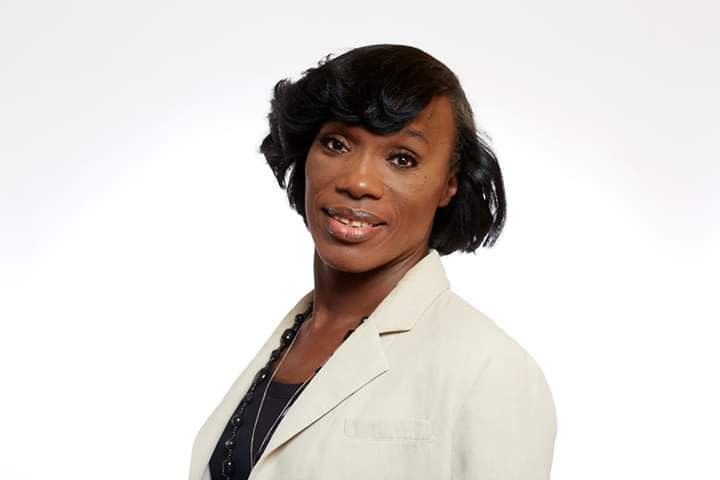I was sexually assaulted in prison. Overhaul the system to protect the trans community.
You’re reading one of two columns on transgender issues and the criminal justice system.
For more, read “DAs should decline to prosecute cases that target trans community.”
I am a Black transgender woman who was harassed, physically assaulted and raped while I was incarcerated in New York state prisons. Despite federal law requiring prisons and jails to prevent rape and to support survivors, I lived in constant danger and fear of being sexually assaulted.
At one prison, I was an aide charged with putting away materials after class. While I was going about my task, another incarcerated person entered the room, locking the door behind him.
He was a hulking figure. I couldn’t fight him; he would have crushed me. There were no corrections officers or staff in sight. I had no way out. I got down on my hands and knees as he forced me to perform oral sex. He threw three packs of cigarettes on the table before he left – as payment or a gift or maybe a sick joke? I don’t know because there was no conversation, just the unspoken threat of violence.
That rape has stayed with me, like a residue that you can’t wash off. Maybe because I was caught unaware in a space that was usually safe. Or maybe it was the insult of the cigarettes, which felt like a final blow to make me feel cheap. It wasn’t the first time I was raped or the most violent. But it was a devastating reminder that there are no safe places in prison.
BEN CRUMP: Black lives have always had a price. Floyd case brought new accountability.
In my experience, this was especially true for transgender people of color who are incarcerated. We often feel less protected and that our abuse complaints aren't taken as seriously.
The people you need, the people you trust often become the rapists and sexual abusers. It might be the officer who gives you more than one bar of soap – and then slips into your cell and makes you strip and dance in front of him. It could be the incarcerated person who attends religious services with you every week – and then rapes you. It could be a gang member who takes possession of you and rapes you in exchange for “protecting” you from attacks by other incarcerated people.
USA TODAY's opinion newsletter: Get the best insights and analysis delivered to your inbox.
I never reported that rape – or any other – because I had too much to lose and nothing to gain. When I was in prison, correction officers and staff dealt with rape by putting the victim in solitary confinement. They did that to protect us. But that “protection” meant being cut off from everyone and everything. If you were in a GED program and got raped, reporting it could mean that you’d derail your progress and get bumped from the class. If you were close to a parole hearing and raped, you might miss your chance to go home. I was incarcerated multiple times for various theft, burglary and possession charges.

Unfortunately, my story is not unique and the abuse continues. A recent report by the Sylvia Rivera Law Project and TakeRoot Justice, “It’s Still War in Here,” documents the abusive conditions in New York state prisons. Eighty percent of the trans, gender nonconforming and intersex survey participants say they experienced physical assault by a corrections official. Three-quarters say they experienced sexual violence from officers, and more than two-thirds of those who reported it say they faced retaliation.
COLUMN: Chauvin sentencing not enough. Police oversight must be put in the hands of the people.
I’ve been out of prison since 2017 – and there have been some changes since then. The United States is beginning to grapple with the racism embedded in the criminal carceral system. There is growing recognition of sexism and its toxic impact on society – including toxic masculinity, transphobia and rape culture. In some New York facilities, advocates have been given access to transgender and gender-nonconforming incarcerated people so they can help file complaints. Despite that, my story is still the everyday reality for too many transgender people in prison.
It is long past time to take action to address the abuse and human rights violations against transgender and gender-nonconforming people in prison and jail. The “It’s Still War in Here” report calls for some basic actions, like providing separate transgender and gender-nonconforming housing, holding corrections officials accountable for verbal abuse, addressing sexual violence, giving incarcerated individuals better access to quality health care, protecting people who report grievances from retaliation and allowing people to determine their gender expression.
POLICING THE USA: A look at race, justice, media
As long as people are willing to ignore the inhumane conditions in prisons and jails, the abuse will continue. That’s why I work to help those who are still inside. I challenge you to join me in standing against the too often deadly transphobia behind bars.
Grace DeTrevarah is the LGBTQ liaison and senior peer educator at the Osborne Association.
You can read diverse opinions from our Board of Contributors and other writers on the Opinion front page, on Twitter @usatodayopinion and in our daily Opinion newsletter. To respond to a column, submit a comment to letters@usatoday.com.
This article originally appeared on USA TODAY: I was raped in prison. Overhaul system to protect trans community.

